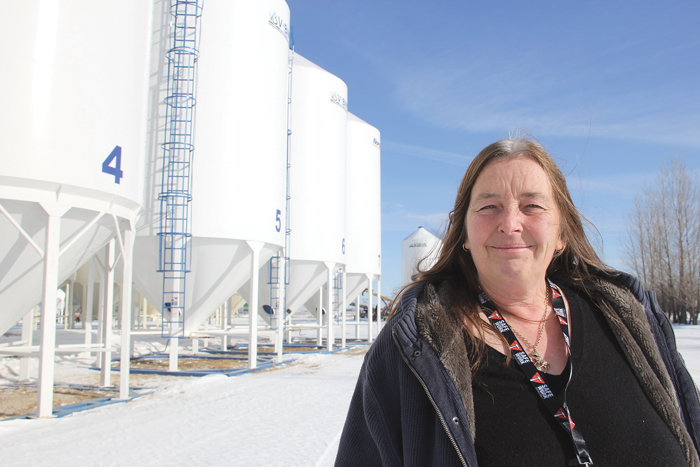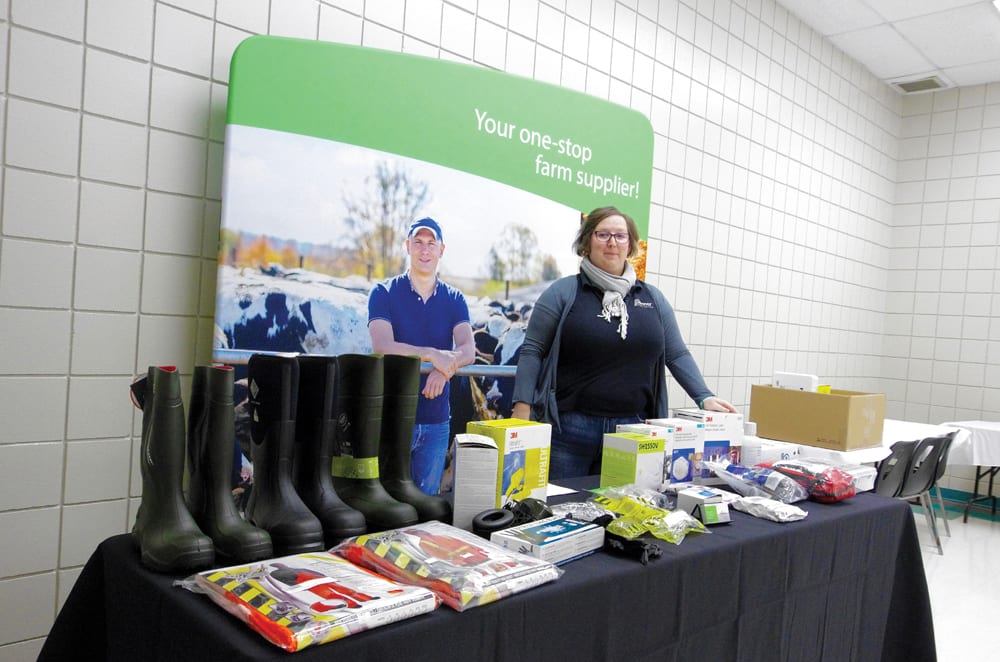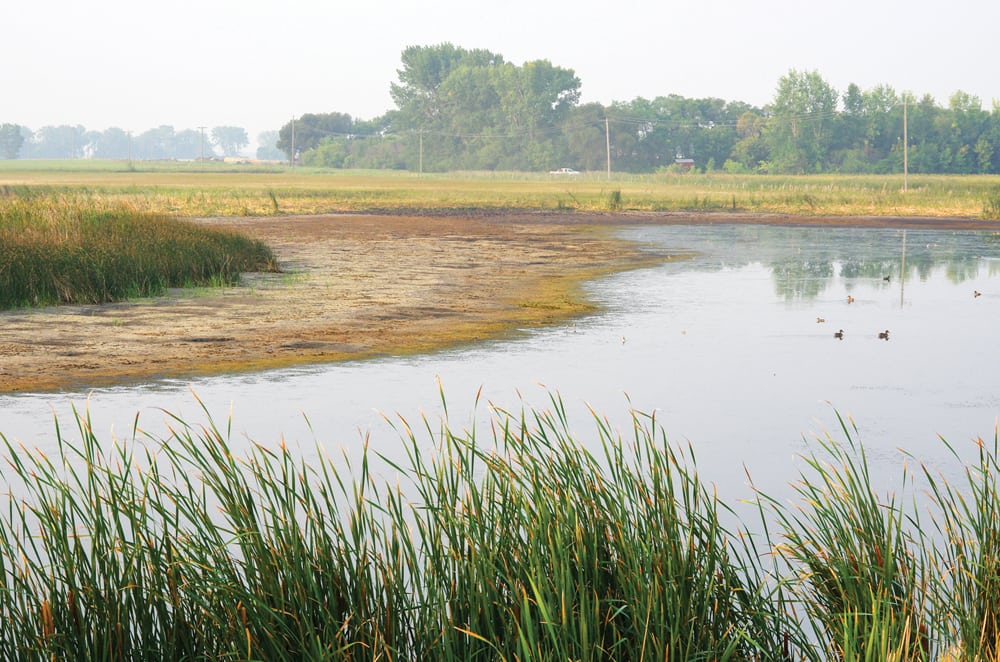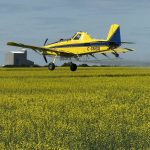A Workplace Safety and Health officer has arrived at your farm to do an inspection. Can you tell them to leave?
Some farmers have tried, apparently using a few choice words.
But the inspector will be back and telling them to leave only shows you don’t know the law, says Morag Marjerison, a new safety consultant for Manitoba farmers.
“They have a right to be there,” she said. “The (Workplace Safety and Health) Act says you must co-operate with them. And the more you want to butt heads with them the more it’s going to be game on.”
Read Also

First Manitoba hay harvest short
Manitoba’s first hay cut of 2025 isn’t huge by initial counts, but things are worse farther west in the Prairies
Marjerison’s job for 2015 is to advise farmers on Workplace Safety and Health Act and Regulations and make more clear what they need to comply with provincial workplace laws.
Keystone Agricultural Producers has arranged to have the provincial SAFE Work Manitoba consultant work in a partnership with them for a year as an on-call, free-of-charge, confidential adviser to farmers who have questions about how to prepare for a Workplace Safety and Health inspection.
There are many questions being raised now that Workplace Safety and Health has moved away from a prevention and educational role to one strictly in enforcement and stepping up the number of inspections it does on all types of high-risk industries, including farms.
It boils down to more farms facing improvement orders to comply with the legislation, said Marjerison.
“The problem at the moment, though, is there’s very little out there to provide farmers with information and advice about what this legislation is all about,” she said, adding a surprise visit from a safety officer is going to feel like being pulled over for speeding when you don’t know what the limit was.
“It’s very difficult to comply with something if you don’t know what it says.”
Hired workers only
Marjerison spoke at a series of farm meetings hosted by KAP and the University of Manitoba around Manitoba this winter to explain her role and answer some of the common questions she’s hearing from farmers.
They typically include — What kinds of farms are being inspected and why? — and what the safety officer is actually looking for.
Only farms with hired workers are inspected by safety officers, said Marjerison. They will not inspect the family farm, a point of some confusion since Workplace Safety and Health defines the family farm differently than most farmers understand it, she said.
By family farm, Workplace Safety and Health means the farm where only the owner/operator and family members work.
“Workplace Safety and Health safety officers do not, at this point in time, inspect farms that have no hired workers,” she said.
The officer may show up for one of two main reasons — the farm is simply on the routine roster of worksites to inspect, or there’s been a complaint. Marjerison, who has 20 years’ experience in the private and agricultural sectors, said complaints about farm worksites have been relatively rare, but are on the increase.
Less than a decade ago, a couple of complaints a year was considered a lot.
“There’s now 25 to 30 complaints a year about farm operations,” she said, adding that they most often come from younger workers (under 25) who are better informed about worksite hazards on the farms. Or they come from a concerned parent whose kid is working for a farmer.
“Quite often it’s someone’s mom saying, ‘I don’t like what my young son is being asked to do at work,’” she said.
Hazards identified
Safety officers doing a routine inspection are looking for safety hazards such as unguarded PTOs, augers or ventilation systems, damaged electrical cables and cords, access to first aid kits and inappropriate chemical storage, Marjerison said.
Stairs without handrails, ladders with loose or broken rungs, and whether people working there are wearing appropriate personal protective equipment are others. They may also test air quality or noise levels.
The law allows them to speak to your employees, ask questions, and they can also take photos, said Marjerison. If they find something amiss, they’ll leave an improvement order saying what was observed and what needs remedial action.
“It will tell you which part of the actual legislation you were not in compliance with,” she said, adding they must quote to the farm owner what it is they are in breach of and what you have to do and by when.
What they don’t issue are fines, but they will give the operator a deadline to fix the problem.
“Depending on the severity of what it is, it may be 24 hours, or may be three days, some may be 14 days,” she said. There can be fines if the deadline passes and you remain non-compliant.
Farms may also be issued a stop-work order if the officer believes someone could be hurt immediately.
That’s why this all boils down to being prepared for the inspection in the first place.
“Some say, ‘we’re doing all we can do right now,’” she said. “But if that were true Workplace Safety and Health inspectors should not be able to walk onto anyone’s farm in this province and find an unguarded PTO. And from my experience I can find one on roughly one in three farms,” she said.
Farmers with questions about what this all entails — and she anticipates there are plenty — should be calling her and not putting this off any longer, she stressed.
“The best thing to do is ask questions and make use of my time. I want to be kept ridiculously busy.”
This arrangement between SAFE Work Manitoba to have her offer free-of-charge, confidential farm safety advisory services lasts only until the end of 2015. KAP worked hard to make this resource available to farmers because it’s plainly needed, said KAP president Dan Mazier.
“People are simply unaware (of Workplace Safety and Health legislation),” said Mazier.
It’s up to farmers to change that and the time is now, Mazier said.
“KAP chose to go this route and offer this tool for farmers. But we have this service only for the next 10 months. This is our window. If we don’t use it, I don’t know what will happen.”
Marjerison’s office is in Brandon in Unit 1, 457 9th Street. She can be reached at (204) 573-7791 or by email at [email protected].




















